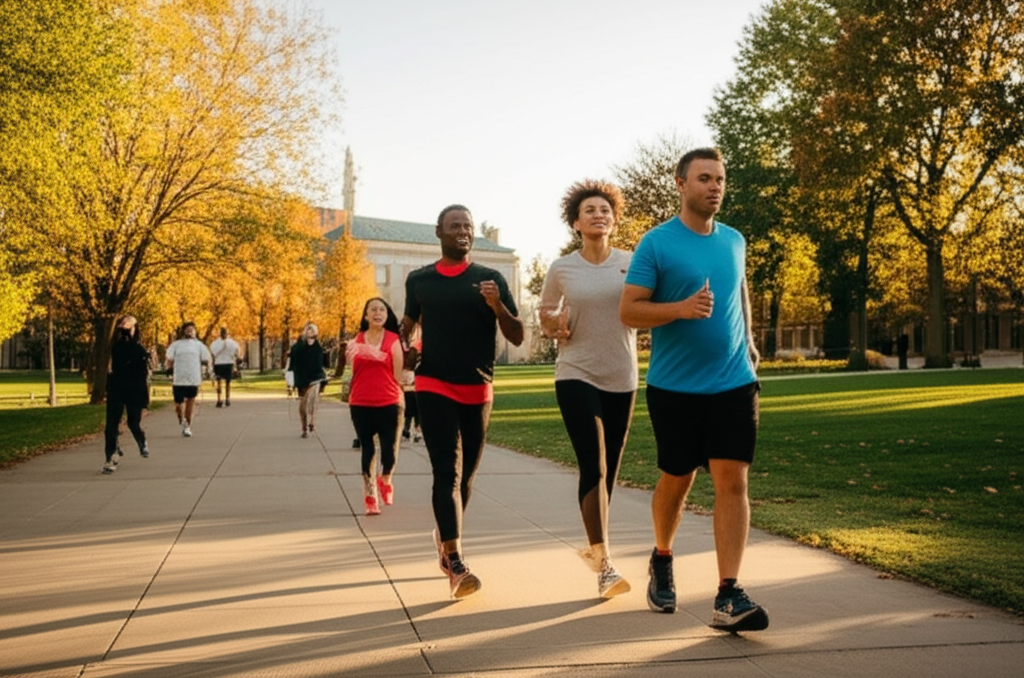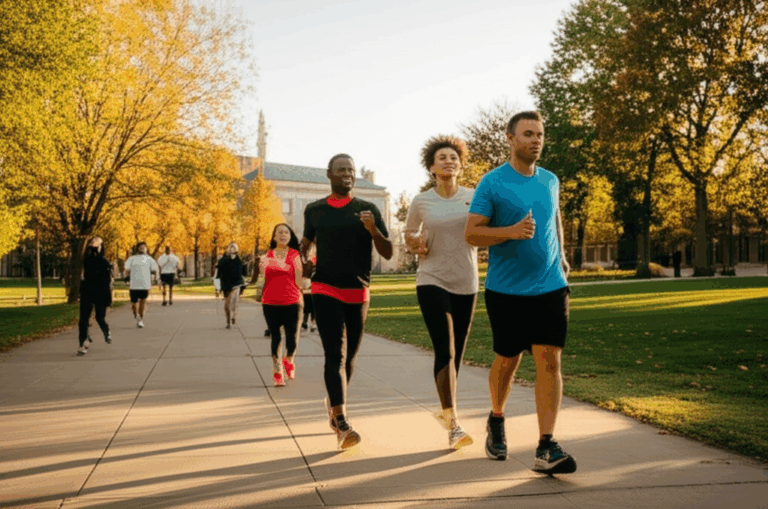In an era where mental health challenges are increasingly prevalent, particularly among college students, research into accessible and effective interventions is critical. The Ohio State University is at the forefront of such efforts, conducting significant studies that delve into the profound connection between physical activity and improved mental health outcomes. These initiatives highlight exercise not merely as a physical pursuit, but as a powerful tool for fostering resilience, reducing symptoms of anxiety and depression, and enhancing overall well-being.

Unpacking “Exercise is Medicine™ for Student Resilience”
One of Ohio State’s notable endeavors is the “Exercise is Medicine™ for Student Resilience” study, a collaborative effort by the College of Education and Human Ecology, Wilce Student Health Center, and Student Life Recreational Sports. This study aims to integrate structured exercise into the lives of students, especially those who are less active or experiencing stress.
Carmen Swain, director in health and exercise science and principal investigator of the study, emphasizes that the program’s core mission is to positively impact the mental health of college students. The research is particularly timely given the high levels of anxiety, depression, and loneliness reported by many Ohio State students.
How the Program Works
Participants in the “Exercise is Medicine™ for Student Resilience” program engage in weekly exercise sessions over nine weeks, led by trained undergraduate students serving as research assistants or personal trainers. To monitor progress and gather data, participants wear a “WHOOP” fitness tracker, which records biometric data such as heart rate and sleep patterns. This tracker also helps researchers observe decreases in stress levels throughout the study. The program’s goal is to assess whether physical fitness programming can positively influence participants’ scores on surveys measuring depression and loneliness.

Broader Scope: Exercise and Mental Health Across Populations
Ohio State’s commitment to understanding the mental health benefits of exercise extends beyond the student population. The university’s Wexner Medical Center is a strong proponent and active participant in the global “Exercise is Medicine™” initiative, which advocates for making physical activity a standard component of disease prevention and treatment.
Parkinson’s Disease and Depression
A compelling study from The Ohio State University Wexner Medical Center demonstrated that depression improved among Parkinson’s disease patients who participated in a long-term group exercise program. While the study did not definitively prove a “neuroprotective” effect on motor function due to its sample size, it provided strong evidence that exercise can significantly alleviate depressive symptoms in this population. Dr. Laura Park, a movement disorder neurologist and researcher in Ohio State’s Neuroscience Program, highlighted the importance of these findings, noting that mood can often be more debilitating than motor symptoms for Parkinson’s patients. The study reinforces the recommendation for exercise for all Parkinson’s patients, suggesting any routine that improves physical fitness is beneficial.
Integrating Exercise into Mental Wellness Strategies
The Ohio State University recognizes that mental health care requires a multifaceted approach. Various programs across the university, including those within the College of Medicine and College of Nursing, prioritize student well-being and often incorporate elements of physical activity and stress reduction. For instance, the “Mindfulness in Motion” program at the Wexner Medical Center offers stress reduction and resiliency-building activities, including access to a free exercise area for students.
Furthermore, the university offers the “Buckeye Wellness Onboarding Program,” which includes a personalized wellness assessment for health sciences students, evaluating physical activity alongside other healthy lifestyle behaviors and mental health indicators. These initiatives underscore a holistic view of well-being, where exercise is seen as an integral part of a comprehensive mental health strategy.

The Science Behind Exercise and Psychological Well-being
Research consistently supports the notion that exercise can significantly improve mental health. Physical activity has been linked to a host of benefits, including reduced risk of psychiatric disorders, improved mood, lower stress levels, and enhanced attention.
How Exercise Impacts the Brain
Exercise triggers various physiological and neurological responses that contribute to its antidepressant and anxiolytic (anxiety-reducing) effects. It can lead to the release of endorphins, which have mood-boosting effects. Additionally, regular physical activity can help regulate neurotransmitters like serotonin and norepinephrine, which are crucial for mood regulation. Exercise also promotes neurogenesis (the growth of new brain cells) and improves blood flow to the brain, enhancing cognitive function and resilience to stress.
Overcoming Barriers to Physical Activity
Despite the well-known benefits, many individuals struggle to incorporate regular exercise into their routines. Ohio State’s “Exercise is Medicine” program and similar wellness coaching initiatives aim to address these barriers by providing tailored exercise routines, guidance, motivation, and a supportive environment. These programs often utilize goal-setting strategies and focus on behavior modification to help individuals establish sustainable exercise habits.
Conclusion: A Vital Tool for Mental Resilience
The research and programs at The Ohio State University underscore a critical message: exercise is a potent and accessible tool for improving mental health. From structured interventions for college students to specialized programs for patients with chronic conditions, the evidence consistently points to the profound positive impact of physical activity on psychological well-being. As mental health continues to be a global priority, integrating exercise into daily life and clinical practice holds immense promise for fostering a healthier, more resilient society.







